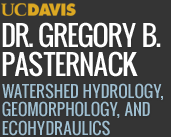Earth Stewardship Discussion
Hydropower to Reduce Reliance on Fossil Fuels Even If It Destroys River Ecosystems?
Background:
There is a saying, “Think Global, Act Local”. However, what if acting locally makes global problems worse, or acting globally makes local problems worse? Just such a complicated trade-off appears to be at play in the approach different countries have taken to either (a) combat global climate change by dramatically increasing dam construction and flow regulation for renewable hydropower or (b) combat river ecosystem degradation or collapse by removing dams and/or significantly reducing flow regulation.
According to Manibo (2016), “Hydropower projects are accepted by the United Nations Framework Convention on Climate Change under its Clean Development Mechanism, which allows such projects to generate carbon credits.” As a result most nations around the world are planning to build more dams in their efforts to increase electrical capacity and reduce fossil fuel dependence. Some scientists advocate that hydropower saves far more greenhouse gas emissions than it creates. Although these pro-dam scientists recognize that dams harm local rivers, they believe that these effects can be mitigated through investments in river science and engineering to enhance dammed rivers.
Meanwhile, many scientists and non-governmental organizations report that dams emit large amounts greenhouse gases, especially where most are being built in the tropics, and their other problems cannot be mitigated. In the United States, a growing number of dams are being entirely removed, because they are deemed to cause too many problems and have harmed the river ecosystem too much. In recent years, industrial solar power has become less expensive than fossil fuel power, even including the cost of battery systems. The cost of wind power is also declining rapidly. Thus, many people argue that adoption of solar and wind power can eventually replace not only fossil fuels but also hydropower. Whether that is the case or not is speculative, because the known total supply of “rare Earth elements” necessary to construct solar panels may be too limiting.
The question arises, Shall humanity build more dams to reduce dependence on fossil fuels or remove more dams to restore more rivers to a health ecosystem?
Different stakeholders have different perspectives on this issue.
Broad Assignment:
Fundamentally, this question revolves around the idea that humanity can swing the status of the global environmental and wholesale ecosystems through its conscious action, whether to build or remove tens of thousands of dams. To get a glimpse of such massive ecosystem engineering, you will watch the movie Salmon Fishing in the Yemen to view a dramatized, fictional perspective on an effort to change a river’s flows and fish population into different regimes. After watching the movie but before coming to your discussion section, everybody will read an article describing the anticipated boom in river dam construction. Further, after watching the movie but before coming to your discussion section, each person will be assigned to a stakeholder viewpoint and you will read a document presenting the viewpoint you are assigned to articulate. In class you will participate in discussion of the scenario.
Everybody reads:
- Zarfl, C., Lumsdon, A.E., Berlekamp, J., Tydecks, L, Tockner, K. 2015. A global boom in hydropower dam construction. Aquatic Sciences 77: 161-170.
- Note that this item cannot be shared publicly, but is available through UCD's online journal access rights. Please obtain this from the SAS004 Canvas Files pages or by downloading it directly from the journal from a UCD-hosted internet connection. https://doi.org/10.1007/s00027-014-0377-0
Stakeholder ID’s For This Assignment:
- United Nations
- Dam Construction Advocate
- Pro-Rivers Non-Governmental Organization
- Dam Removal Scientist
Specific Readings by Stakeholder ID:
You are welcome to search the internet to find more resources in support of discussing the viewpoint you are assigned to represent.
1. Read the United Nations article, “How Hydropower Can Help Climate Action”.
2. Muller, M. 2019. Dams have the power to slow climate change. Nature 566-315-318.
Note that this item cannot be shared publicly, but is available through UCD's online journal access rights. Please obtain this from the SAS004 Canvas Files pages or by downloading it directly from the journal from a UCD-hosted internet connection.
3. Manibo, M. 2016. Are Mega Dams a Solution or Burden to Climate Change
Activity in Discussion Section:
- 7 minutes settling class down, deal with class issues, and TA intro to scenario.
- 7 minutes discussion with same all people with same viewpoint discussing how to make your main points
- 7 minutes with an opposing viewpoint, one-on-one
- 7 minutes with an opposing viewpoint, one-on-one.
- 7 minutes with an opposing viewpoint, one-on-one.
- 7 minutes with an opposing viewpoint, one-one-one
- 7 minutes whole-class discussion wrap up.
Literature Cited
Manibo, M. 2016. Are Mega Dams a Solution or Burden to Climate Change? https://www.internationalrivers.org/resources/are-mega-dams-asolution-or-burden-to-climate-change-eco-business-11471


